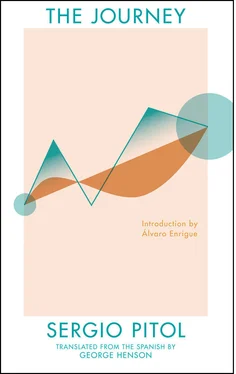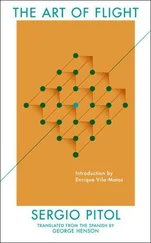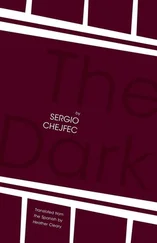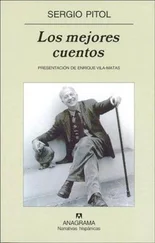I am a shadow of someone’s shadow.
MARINA TSVETAEVA
I am impressed by the current veneration of Tsvetaeva by women. They are excited about her work, but, personally, I think what fascinates them most is her person. The Russian Irma Kudrova, however, in her preface to A Captive Spirit, surpasses all others:
One of the brightest stars on the horizon of twentieth century Russian culture, Marina Tsvetaeva’s name transcends literary fame alone. She was a unique personality, whose words embodied the rare richness of her soul, the immortality of her mind, and her uncompromising conscience. She fused the gift of poetry and passionate human essence into a tight union that infects a current tension into every line of her poetry. 12
Very different from what other women of letters who dealt with her closely in life thought of her. Nadezhda Mandelstam met her in 1922, shortly before she emigrated from Moscow; she remembers her this way:
My impression of Tsvetaeva was that she was absolutely natural and fantastically self-willed. I have a vivid recollection of her cropped hair, loose-limbed gait — like a boy’s — and speech remarkably like her verse. Her willfulness was not just a matter of temperament but a way of life. She could never have reined herself in, as Akhmatova did. Reading Tsvetaeva’s verse and letters nowadays I realize that what she always needed was to experience every emotion to the very utmost, seeking ecstasy not only in love, but also in abandonment, loneliness, and disaster. I can see there is a rare nobility of mind about this attitude, but I am disturbed by the accompanying indifference to people who at any given moment were not needed at her “feast of feelings.” 13
In Nina Berberova’s memoirs, there are two testaments, one in Prague, from 1923, and another in Paris, from 1937:
All that Tsvetaeva says interests me, there is a mixture of wisdom and whimsy in her speech; but there is almost always something alien to me, a sick strain that startles me, exhilarating, provocative, “clever”, but somehow disturbing, without equilibrium, somehow dangerous for our further relations, as if we were now happy to fly over waves and thresholds, but the following moment we would bump into each other and get hurt. And I feel this. She obviously does not; she probably thinks in the future she can either become friendly with me or quarrel. 14
And years later, shortly before leaving France:
I saw Marina Tsvetaeva for the last time in the autumn of 1938 at the funeral of Prince Volkonsky, at the moment his coffin was being out of the church (on the Rue François Gérard). She stood at the entrance, her eyes full of tears, aged, almost white, hands crossed on her bosom. This was soon after the murder of Ignace Reiss in which her husband, Efron, was implicated. She stood as if infected by a plague, no one approached her. Like everybody else I walked by her. 15
They were writers of great moral strength, they were objective, not like the majority of Russians in Parisian circles, such as, for example, the impossible Zinaida Gippius, wife of Dmitri Merezhkovsky, who was considered a Russian queen exiled in France, and to whom a writer like Tsvetaeva, who admired Mayakovsky and Pasternak, could not be anything but scum.
An aficionado and advocate, a patient and loyal friend from her days in Prague until the end, Marc Slonim, a critic and historian of Russian literature, one of the first enthusiasts of her work in the West, who together with Svyatopolk-Mirsky proclaimed her one of the major poetic figures of her time, and not only in Russian terms, presents us the image of Marina, mocked by the mediocrity and pettiness of Russian exiles:
In émigré Paris, Tsvetaeva obviously could not fit in at “court.” Newspapers and journals tolerated her, in the best of times, but she often found the idea of collaborating with others offensive. She could never occupy a place in émigré “society” salons, political and literary circles where everyone knew each other…She remained forever the wild outsider, divorced from the group, and distinguished herself by her appearance, speech, outfits and mark of poverty… 16
At nineteen, even before she published her first book of poetry and married Sergei, the seventeen-year old student of literature, Tsvetaeva, designed an exciting life project, free, without shackles, without limitations, similar to that of the Romantics. The contempt she had felt for Chekhov since her youth is due possibly to the fact that the universe he created exemplified the eclipse of the hero. The characters that inhabit Chekhov’s stories and dramas, consumed by a febrile electricity, are antagonistic to romantic protagonists, the heroes of Pushkin or Lermontov. The Russian Romantics invented the writer as hero, a central figure, sacred, and when one says writer one should understand poet. Both Pushkin’s life and death, like that of Lermontov, have a meaning identical to that of their characters: Onegin, Pechorin. Revolution is the quintessential romantic phenomenon. The indeterminate, the irrational, overlaps the determined. Passion is the point from which the revolution departs. The fluid, the ethereal, rebels against the inert stubbornness of paralyzed regimes, requiring a new form and a new discourse. We will have to destroy everything and discover everything. This is the conception of the nineteenth-century romantic poet as the only being who has a relationship with the universe, who listens for the unknown and from there utters the secret words. He alone has the right to speak with nature and the gods, because like them he knows all the secrets and possibilities of language. However, Marina detests revolution. Her romanticism requires power. Napoleon was one of her childhood heroes. From a young age, she knew what her place in poetry was. In language, she found the signs she was looking for. Her poetry is different from that of her contemporaries. She employs strong, clear nouns and names things accurately, but when her words approach each other they are transmuted into atmosphere, shadow, pain, despair. In her last decade, she wrote, above all, essays, and played freely with genre. Her essays are always a story and the kernel of a novel and a chronicle of time and a piece of autobiography.
She went to Paris in 1925, preceded by a mysterious halo. Rilke — no less! — had celebrated her. Critics surrendered to her, to her prestige, to the originality of her persona. Her public readings were attended by the most important Russian literary community in France for three or four months. But the exaltation of two Russian princes, both intellectuals, was enough to defeat her. Prince Dmitri Svyatopolk-Mirsky, a fan of her poetry from early on, who followed her from the beginning and saw her explode like a revelation, declared in Paris and in writing that she was the best Russian poet in Paris at the time; the other prince, the young Dmitri Shakhovskoy, who directed and financed a magazine of great beauty where every writer wanted to publish, invited her to collaborate on the third and final issue; The Prince wanted the issue to be exceptional because it not only marked the end of the magazine but also his stay in the world. He had already prepared his entrance into a silent order in a monastery on Mount Athos. The title of her article was “The Poet and Criticism;” therein Tsvetaeva made light of Paris’s Russian critics, accusing them of ignorance and parochialism; they discredited modern poetry out of misinformation, due to their lack of culture. It was an arrogant and unforgiving essay, but it was sustained by literary truths and objective concepts. It marked the end of the cult of Tsvetaeva. She was never able to recover; but rather it was the first step of her descent into silence. Sergei Efron, who had never worked in his life, was invited by Prince Mirsky to collaborate with him and some other notable Russians to publish a literary magazine called Milestones , which would publish Russians from both outside and inside Russia, that is, those from within the inferno: Soviet Russia. Pasternak, Babel, Esenin, Tynyanov — a quite remarkable group in any world literary scene — were described in Paris by the most influential critic in exile, Peter Struve, as “mere carrion.”
Читать дальше












